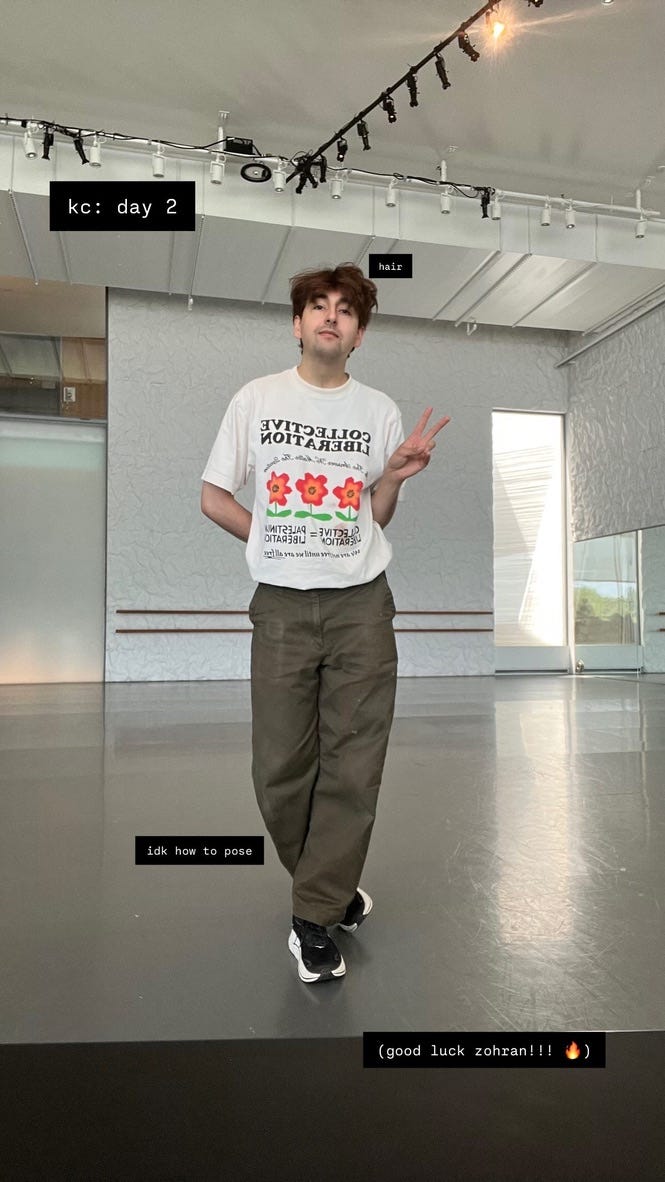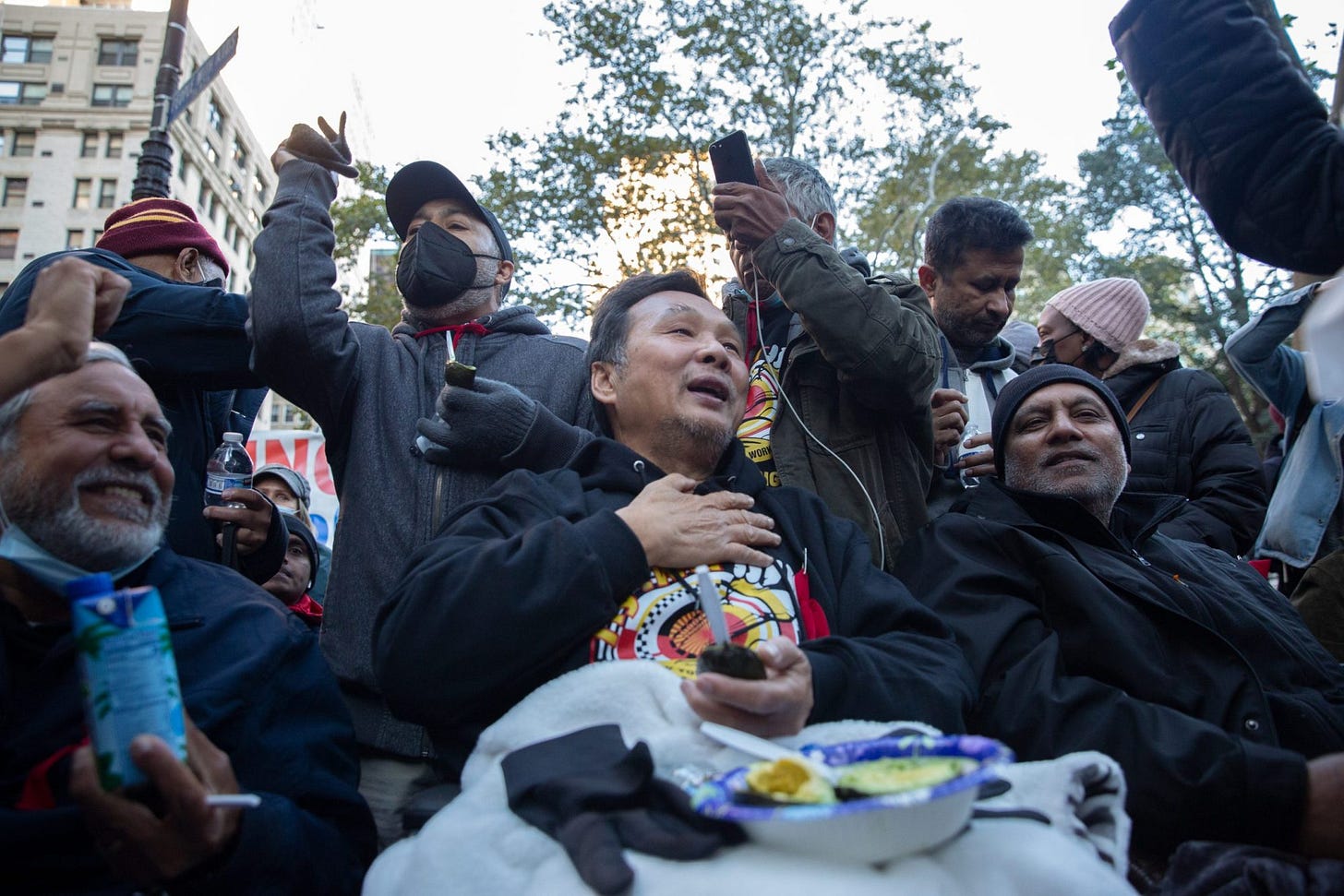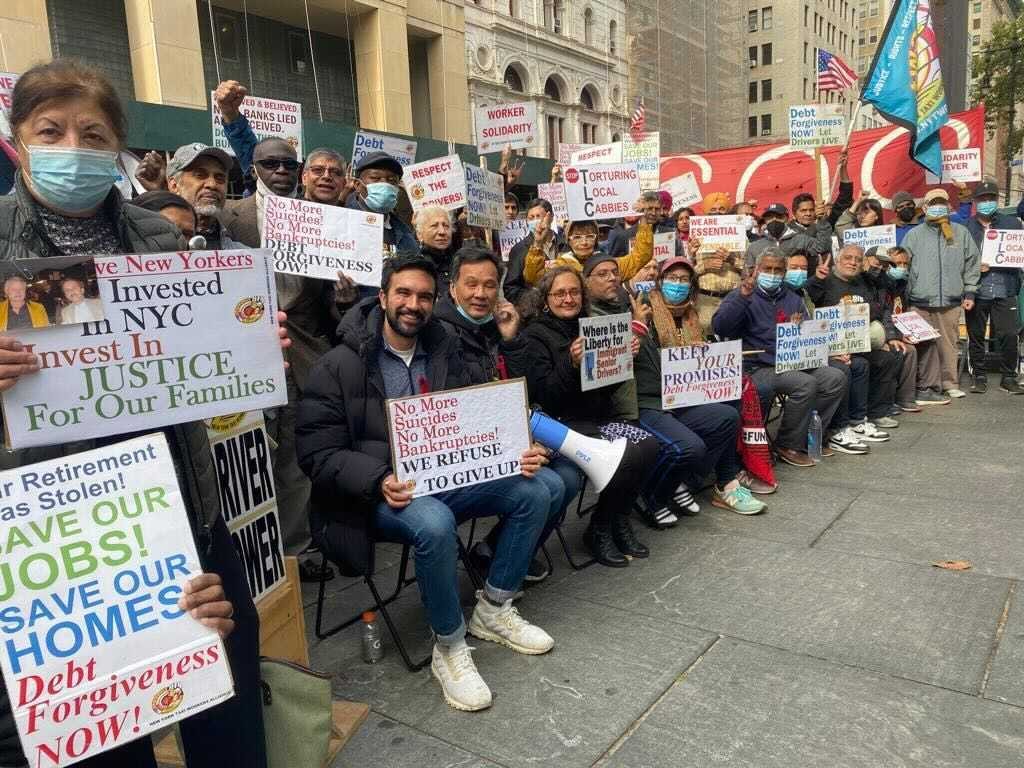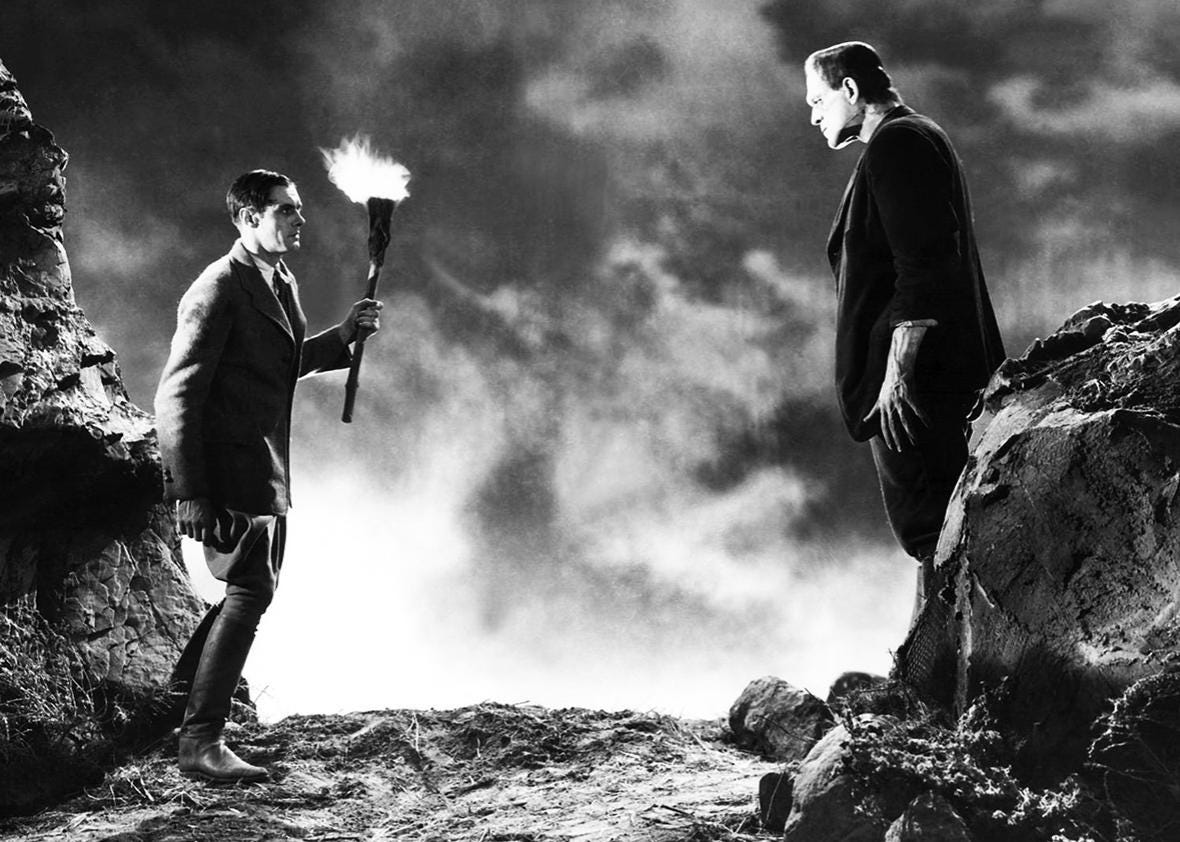My second day was more productive than the first. The first day is always a bit rough on a residency. I felt like I had to get settled in the space: physically, mentally, emotionally. It’s just sitting in a room to write, but so much preparation goes into constructing that creative space. So much of it is also permission — for yourself, to shift from the mundane, the material, the practical, slipping into some new layer. Porous, electrified – when you haven’t been in it for a while, you can really feel it when you return.
Today I worked on my play A Wake At Singh’s. I originally developed it with The Civilians for the 2021-2022 Research & Development Fellowship. I pitched it as “Waiting for Lefty for the Rideshare Era,” and thankfully it deepened from there. When the R&D Group began to meet, we took turns presenting our research (this was my introduction to the “PowerPoint party”). It was right around this time when the New York City cabbies won debt relief from the city after a 15-day hunger strike. After Rideshare apps came onto the market, the supply of drivers shot up. The problem was, the value of the Taxi Medallion, a license which drivers pay monthly for, was based on keeping the number of drivers low enough to create demand. Without any regulations to off-set the flood of new drivers, Yellow Cab drivers’ had to give up more for collateral, make higher payments, and take in less money from fares. The combination of these factors led to multiple suicides among the cabbie community, which is what eventually drove the New York Taxi Workers Alliance, led by the indomidable Bhairavi Desai, to stage a hunger strike until the city took action. I saw this diverse group of immigrants coming together to demand change (a South Asian TikTok-er once declared “these are our uncles!”) and my project became honoring their struggle.
I toyed with it being a Brechtian, agit-prop play, but I felt like I was just remixing the journalism that already existed, not contributing anything new with my artistic lens. Eventually, I shrugged off the pressure to make a documentary theatre piece and instead crafted my own story about a fictional found family of immigrant cabbies, meeting at an all-night Indian diner in Jackson Heights, Queens (often referred to as NYC’s “Little India”). They come together for food and to plan collective action, when the tragedy strikes close to home.
The play has become even more relevant lately, as Zohran Mamdani, who as a councilmember put his body on the line to join the strikers, now may become Mayor of New York City (imagine a city we can afford!).
While the play has grown tremendously over two workshop processes, one with The Civilians, and one with Prologue Theatre in Northern Virginia, I’m in the middle of a page 1 rewrite, and I’ve been in the middle of it for months now, without the drive to work on it. This week is the perfect opportunity.
Often, I’ll open two windows on my laptop: the new script on one side, the old draft on the other. I will go back and forth, and it will help guide the structure of my rewritten scenes. When rewriting, there are some stages I’ve noticed: first, you’re making small changes here or there, then you get to an idea that sends you on branching paths further and further away from your original ideas. You get scared - these new ideas haven’t been read yet, they haven’t been workshopped, how do you know they’re better? What if you’ve ruined everything? Then, something happens, and you start to see all the flaws in your old text, you remember all the decisions you made because you couldn’t think of anything, or you didn’t know the characters well enough, you find the inconsistencies, and then you realize: you’re growing. You’re making more methodical decisions, you’re approaching it from a new perspective, and the new work takes on its own shape and weight.
It’s still scary though, until your next workshop or reading. Just make sure you save the scraps you delete somewhere, or at least the older versions. Sometimes, even now that you’re in a different world from that old draft, you can return to it for inspiration.
Writing was slightly slow today, but then again, almost the entire play takes place as large group scenes, meaning every moment is a decision of who speaks when, why, and what they reveal. Then there are moments when the characters really do speak to you, and you’ve just been typing without your full focus. That’s the stuff, man.
Creation is a fascinating, complicated process. Can’t wait to see what I get done tomorrow.









